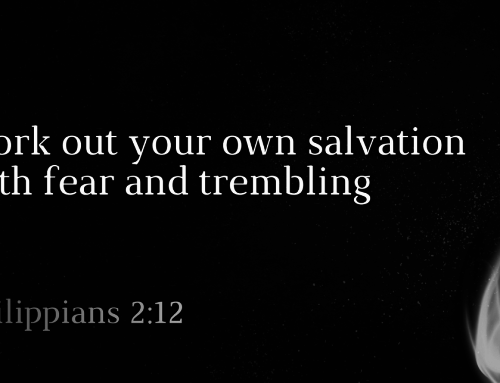Scripture reference
And Miriam the prophetess, the sister of Aaron, took a timbrel in her hand; and all the women went out after her with timbrels and with dances. And Miriam answered them, Sing ye to the LORD, for he hath triumphed gloriously; the horse and his rider hath he thrown into the sea.
Exodus 15:20-21
Other references to Miriam:
- Exodus 2
- Numbers 12:1-15
- Numbers 20:1
- Numbers 26:59
- Deuteronomy 24:9
- I Chronicles 6:3
- Micah 6:4
Background
- She was the older sister of Moses and Aaron.
- As a young girl, she showed wisdom and courage, cautiously caring for her infant brother Moses at a very dangerous time.
- She witnessed ALL that God did for the Israelites in the Exodus, and the beginning of the wilderness march towards the Promised Land.
- She witnessed the miracles of the ten plagues, the Red Sea, the manna, and the quails.
- She was a prophetess, which means that she was involved in ministry among the women.
- Miriam’s good beginning
She was obviously a very reliable, mature, dependable girl (probably between 12 and 14 years old) because her mother was able to trust her to oversee Moses’ safety at a time of extreme danger when the ruling Pharaoh ordered that all Hebrew male babies be drowned in the Nile to reduce the Israelite population. Likely the reason Moses’ mother did not personally accompany her child was fear of suspicion. A young girl wading by the water would be less conspicuous than a mature woman. Miriam’s wisdom was evident in her oversight of her baby brother.
Miriam also showed wisdom when Pharaoh’s daughter found Moses. She “thought on her feet” by quickly suggesting her mother could nurse him.
Lesson: Miriam, like many of us, was privileged to be raised in a God-fearing home. She was used by God to protect the infant Moses who became one of history’s greatest leaders. She must have understood the necessity of her brother being raised by his God-fearing Hebrew parents, otherwise she would not have suggested it so wisely to Pharaoh’s daughter.
- Miriam’s leadership in Israel
She was a leader or “prophetess” (Ex.15:20). God also acknowledged her leadership when He included her as one of those who led the Israelites out of Egypt.
“For I brought thee up out of the land of Egypt, and redeemed thee out of the house of servants; and I sent before thee Moses, Aaron, and Miriam.” (Micah 6:4)
There is no doubt that Miriam was a female leader. But the only other reference to her leadership is found in Exodus 15:20-21 where we read of her leading women. It was just after the Red Sea crossing that she led the women to honour the Lord by singing to Him (“Sing ye to the Lord…”). She tried to stir them up in appreciation for what He had done. She gave honour where it was due: “He hath triumphed gloriously.” Her song of praise is exactly the same as Moses’ (ch. 15:1). She “echoed” her brother’s ministry among the women.
Some female leadership is not approved by the Lord. For instance, deacons’, elders’, and pastors’ requirements clearly state that these men should be “husbands of one wife” (I Tim.3:12). No ruling “wives of one husband” are mentioned. This strongly suggests males only should be holding this office. Also, the apostle Paul tells Timothy that women should not teach men, “But I suffer not
Historically, there are very few exceptions of women being in leadership. Deborah is one of the only other female leaders in the Bible. So, as women, we need to accept God’s plan for male leadership and practise our female Titus 2 leadership (women teaching women and children). There is plenty of scope for us there.
Think of Miriam’s role as Moses’ sister
- She assisted him in the massive task he was called to do ministering to the women.
- She witnessed incredible miracles (plagues, Red Sea crossing, manna, quails).
- She experienced the physical challenges.
- She heard the murmuring of the people against her brother.
Lesson: We can allow the Lord to use us if we submissively do His will with the right spirit and in His desired way, yielding to male leadership in the church.
- Miriam’s mistake
Even though the Bible describes Miriam as a noble leader blessed by God, it does not leave out her error. It is written for our learning. Miriam began well and continued well, but did not end well. She, like some, got too critical of her brother and thought he wasn’t behaving the way she thought he should. So she started to speak against him behind his back.
It was at a time when many were critical of him because they were temporarily “deprived” of their comfort in the wilderness. They even came to the place where they would stone him (Numbers 14:10). God had sent them manna to feed them, but they were tired of it and complained bitterly. So God sent them flesh to eat in the form of quails. Then God sent a “very great plague.”
Like so many others, Miriam joined the “bandwagon” of gossips and critics. Strangely, she chose to criticize his marriage first. Moses had married Zipporah, daughter of the priest of Midian, about forty years earlier. There were definite issues arising from this marriage in his pre-leadership days (Exodus 18). Now there is reference to an “Ethiopian woman” (Ex.12:1) and it is not certain who she is. Some commentators believe that Zipporah died and he remarried. Whichever is the case, Moses’ siblings were not happy.As well as that, Miriam and Aaron both began to criticize his ministry. “And the LORD heard it” (Numbers 12:2)”
Moses, like every man, was not perfect, but God said that he was “faithful.” And God was angry with their criticism of this faithful man. God did not excuse them — especially Miriam — because, in this criticism, Miriam was really usurping her brother’s authority by questioning it. God called both of them out alongside Moses, and delivered the double penalty:
- The pillar of cloud of the LORD departed from off the tabernacle (Ex.12:10).
- Miriam was smitten with leprosy (Ex.12:10).
A Lesson for us:
It is very easy to be critical of the servants of the Lord and complain. To our shame, sometimes women tend to “talk” and complain more than men. We are sisters-in-the-Lord of men in ministry, either in the church or on the mission field. If God did not excuse Miriam who had done great exploits in her life, how much less will He excuse us? Therefore, we must be very cautious not to anger the Lord with our words. He does hear them.
James tells us that the tongue is a little member, but it can do great damage. In a church setting, women’s tongues have a history for causing trouble.
That same tongue that we sing praises to the Lord can unfortunately be used for great wrong. Miriam used her tongue to praise God so wonderfully and then she grieved Him by her unnecessary criticism when her brother was doing his best to lead an easily-dissatisfied, murmuring people. “Out of the same mouth proceedeth blessing and cursing. My brethren, these things ought not so to be” (James 3:10).
This punishment was a strong one and it would suggest the hot displeasure of the Lord. Remember Proverbs 6 tells us that God HATES those who “soweth discord among brethren.”
Caution: we can easily fall into the habit of being using our tongues to complain and be critical. We need to be extra cautious about using our tongues against those in ministry.
Because the tongue is such a “deadly” member, we are not able to tame it and we must pray earnestly that the Lord will keep the doors of our lips tightly lest we find ourselves in the same condemnation as Miriam.
- Miriam’s restoration
Moses and Aaron really prayed to God for mercy for their sister and God mercifully answered — in His own way and in His own time. He healed her, but instructed that she remain unclean for one week which meant that the Israelites would all have to wait before they could move on. In other words, the work of the Lord noticeably suffered because of Miriam’s sin. Everyone would be aware that Miriam “was shut out from the camp seven days; and the people journeyed not till Miriam was brought in again.(Ex.12:15).
We have a choice whether to be a “help” in the work of God or a “hindrance”. Sin stops progress in any ministry. Let us flee from being the one to cause any hindrance of any kind.
Miriam thought she was doing God’s work and that she had a right to state what should be done as much as her brother who had the anointing of God. She questioned, “Hath the Lord indeed spoken only by Moses? hath he not spoken also by us?” She elevated herself as an equal and so usurped his authority. She may not have realized how serious God viewed that until she was lying low with the leprosy.
What can we learn from Miriam’s mistake?
Women can be a great help in the work of God or a great hindrance. Of all the good Miriam did, God told the Israelites to remember the penalty she received: “Remember what the LORD thy God did unto Miriam by the way…” (Deut. 24:9). He used her as an example for ensuing generations to avoid the error. We have all sinned with our tongues, but may we have a fresh realization that God does hear. May we like Daniel “purpose in our hearts” that we will not defile ourselves with anything less than God’s best for our lives. May our mouths be used as conduits of His grace. May His love flow freely and beautifully through our tongues. May we not praise God with one side of our mouth and criticize others with the other side. We need help with this!
Then let us pray David’s prayer: “Let the words of my mouth, and the meditation of my heart, be acceptable in thy sight, O LORD, my strength, and my redeemer” (Psalm 19:14).
Consider these verses that reflect on wise use of the tongue:
“Take my voice and let me sing,
Always, only for my King;
Take my lips and let them be
Filled with messages from Thee,
Filled with messages from Thee.”
Frances Ridley Havergal
O for a thousand tongues to sing
My great Redeemer’s praise,
The glories of my God and King,
The triumphs of His grace.
My gracious Master and my God ,
Assist me to proclaim,
To spread thro’ all the earth abroad
The honours of Thy name.
Charles Wesley
Consider the Word of God:
- “I said, I will take heed to my ways, that I sin not with mytongue: I will keep my mouth with a bridle, while the wicked is before me” (Psalm 39:1).
- “And mytongue shall speak of thy righteousness and of thy praise all the day long” (Psalm 35:28).
- “Keep thytongue from evil, and thy lips from speaking guile” (Psalm 34:12).
- “Thou lovest all devouring words, O thou deceitfultongue“(Psalm 52:3)
- “Thetongue of the just is as choice silver” (Proverbs 20:10)










